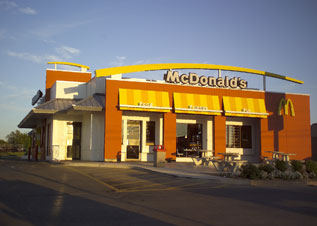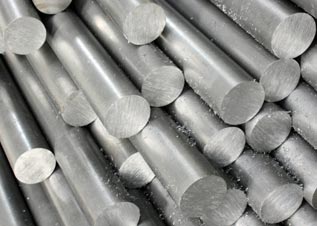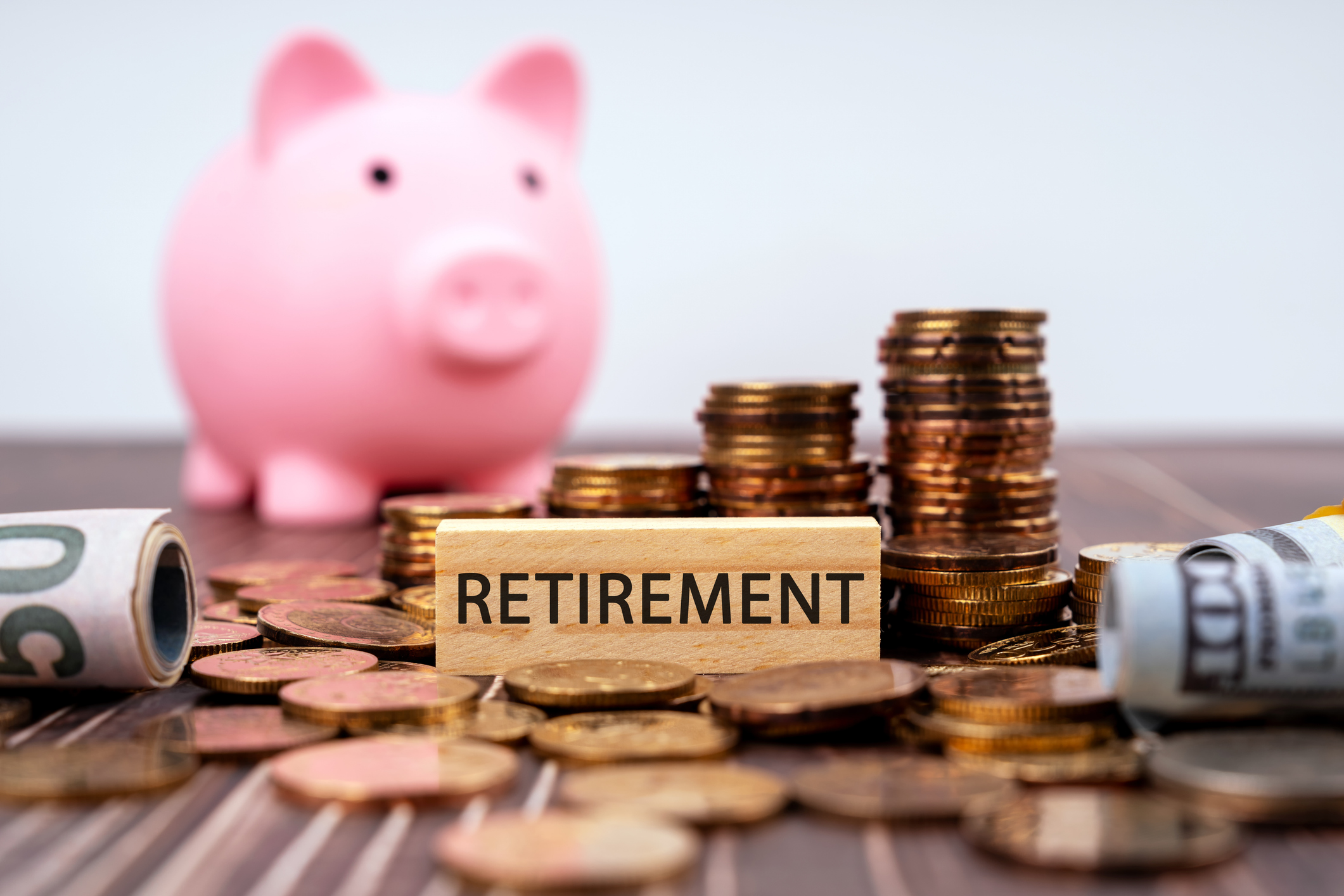Great Dividend Stocks for 2014
Flush with cash, corporate America has launched a new golden age of dividends, pumping record sums into investors' pockets.


Profit and prosper with the best of Kiplinger's advice on investing, taxes, retirement, personal finance and much more. Delivered daily. Enter your email in the box and click Sign Me Up.
You are now subscribed
Your newsletter sign-up was successful
Want to add more newsletters?

Delivered daily
Kiplinger Today
Profit and prosper with the best of Kiplinger's advice on investing, taxes, retirement, personal finance and much more delivered daily. Smart money moves start here.

Sent five days a week
Kiplinger A Step Ahead
Get practical help to make better financial decisions in your everyday life, from spending to savings on top deals.

Delivered daily
Kiplinger Closing Bell
Get today's biggest financial and investing headlines delivered to your inbox every day the U.S. stock market is open.

Sent twice a week
Kiplinger Adviser Intel
Financial pros across the country share best practices and fresh tactics to preserve and grow your wealth.

Delivered weekly
Kiplinger Tax Tips
Trim your federal and state tax bills with practical tax-planning and tax-cutting strategies.

Sent twice a week
Kiplinger Retirement Tips
Your twice-a-week guide to planning and enjoying a financially secure and richly rewarding retirement

Sent bimonthly.
Kiplinger Adviser Angle
Insights for advisers, wealth managers and other financial professionals.

Sent twice a week
Kiplinger Investing Weekly
Your twice-a-week roundup of promising stocks, funds, companies and industries you should consider, ones you should avoid, and why.

Sent weekly for six weeks
Kiplinger Invest for Retirement
Your step-by-step six-part series on how to invest for retirement, from devising a successful strategy to exactly which investments to choose.
Flush with cash, corporate America has launched a new golden age of dividends, pumping record sums into investors' pockets. But even as shareholders reap that windfall, some wonder how sustainable it is. Memories of the rash of dividend cuts during the Great Recession still loom large.
The good news: Many blue-chip companies have ample room to continue raising dividends. The "payout ratio" (the percentage of annual earnings paid out in dividends) is expected to be about 34% for Standard & Poor's 500-stock index in 2014, says Howard Silverblatt, senior index analyst at S&P. That would be well below the historical average of 52%.
Of course, the main reason to buy a stock is for capital gains. But if share-price appreciation slows — or even reverses course for a while — after the bull market surge of the past five years, dividends will become more important. And don't forget that dividends enjoy a tax advantage: They are taxed at a maximum federal rate of 23.8%, compared with a top rate of 43.4% on ordinary income, such as bond interest.
Here's a look at seven dividend stocks worth considering. Some have strong current yields, some promise strong dividend-growth potential, and some offer both. Take your pick.
Prices and related data are as of February 13, 2014.

Verizon Communications
- Share price: $47.31Current yield: 4.5%Annualized dividend rate: $2.12Annualized five-year dividend-growth rate: 2.9%
- Verizon Communications (VZ) has long been high-yield champ for investors who want current income, with yield well above the S&P 500's average of 2%.
- Bottom Line: High and "safe" current yield, but there are doubts about dividend growth.
Like its archrival AT&T (T), Verizon faces heavy expenses for network upgrades. As such, neither telecom giant has offered great dividend growth: Both have raised their payouts a modest 15% since 2008, compared with 29% for the S&P 500 overall.

McDonald's
- Share price: $95.46Current yield: 3.4%Annualized dividend rate: $3.24Annualized five-year dividend-growth rate: 10.1%:
- Bottom Line: High and "safe" current yield, but there are doubts about dividend growth.
The fast-food king has become a symbol of the doubts nagging many multinational consumer-stock giants. Companies such as McDonald's (MCD), Coca-Cola (KO), Wal-Mart Stores (WMT) and Procter & Gamble (PG) have been among the most dependable dividend stocks of the past 30 years. But all face intense competitive pressures.
McDonald's sales growth has slowed markedly over the past two years, and so have earnings. Profit per share in 2013 edged up just 3.5%, to $5.55. The pace of dividend increases also has slowed, from 15% in 2011 to 10% in 2012 and just 5% last year. The stock price has gone nowhere over the past two years.
The current dividend is almost certainly safe. But the stock's above-average yield of 3.4% indicates that investors are worried about the company’s future growth. Perhaps more than ever, investors in McDonald's and other consumer giants need to focus not just on the current dividend but on where it's headed.

Philip Morris International
- Share price: $79.24Current yield: 4.7%Annualized dividend rate: $3.76Annualized five-year dividend-growth rate: 11.7%
- Bottom Line: Above-average current yield and strong dividend-growth prospects.
Tobacco is controversial as an investment, of course. And that means the market demands more of tobacco companies, to the benefit of shareholders: For investors willing to set aside social concerns, Philip Morris International (PM) shares offer both a high current yield and hefty dividend-growth potential. The dividend has more than doubled since mid 2008, when the company was spun off from Altria Group (MO). Altria kept the domestic business, leaving Philip Morris the number-two marketer of cigarettes outside the U.S. (behind only state-owned China National Tobacco).
Philip Morris signaled last year that earnings would be weak in 2014, in part because of spending on new "reduced-risk" tobacco products, including e-cigarettes. That warning depressed the stock in 2013. But as Morningstar has noted, the New York City-based company remains a "cash-generating machine" and understands its shareholders' desire for rising dividends over the long term.

Lockheed Martin
- Share price: $159.80Current yield: 3.3%Annualized dividend rate: $5.32Annualized five-year dividend-growth rate: 18.5%
- Bottom Line: Above-average current yield and strong dividend-growth prospects.
The defense business, like tobacco, is shunned by some investors. So Lockheed (LMT), the world's biggest defense contractor, has used its dividend to show its commitment to rewarding shareholders with hard cash, in addition to aggressively buying back shares (as many other companies have been doing). It has more than tripled its payout since 2008. The most recent hike was a 16% increase paid last December.
The company's fortunes remain tied to government spending in the U.S. and abroad, and in particular to fighter jets such as the F-35. But even though Lockheed’s payout ratio has risen from 23% in 2008 to 50% today, that still leaves room for decent dividend growth if management maintains its policy of directing cash back to shareholders.

CVS Caremark
- Share price: $69.48Current yield: 1.6%Annualized dividend rate: $1.10Annualized five-year dividend-growth rate: 29.3%
- Bottom Line: Lower current yield but rapid dividend-growth potential.
The drugstore chain won't land on anyone's list of high-yielding stocks. Its appeal lies in its stunning dividend growth. CVS Caremark (CVS) has quadrupled its payout since 2008. That includes a 22% increase announced in December. The company is sending a clear message about its intent to reward shareholders, says Kelley Wright, managing editor of the dividend-focused Investment Quality Trends newsletter in La Jolla, Cal. "CVS just produces year in and year out," he says.
Besides running its drugstore chain, CVS became a leading manager of pharmacy benefits for health care providers when it bought Caremark in 2007. That is the "true driver" of the company's economic advantage over rivals, writes Morningstar. CVS is expected to earn $4.48 a share this year, or four times its dividend. That leaves plenty of leeway for further dividend hikes.

Reliance Steel & Aluminum
- Share price: $72.86Current yield: 1.8%Annualized dividend rate: $1.32Annualized five-year dividend-growth rate: 27.0%
- Bottom Line: Lower current yield but rapid dividend-growth potential.
Its name notwithstanding, Reliance Steel & Aluminum (RS) doesn't produce metals. Instead, it has built a business with $8.5 billion in annual sales by serving as a middleman, distributing steel and other metals to myriad manufacturers nationwide.
The company has grown phenomenally via acquisitions over the past decade to become the largest U.S. metals distributor. It expects to continue on that track, gaining more economies of scale. With the stock near record levels, the dividend yield is modest. But the pace of increase has been dramatic: a 230% jump since 2008.
To be sure, this is a cyclical business, and Reliance's earnings would suffer in a recession. But assuming the economy continues to expand, the company should earn about $5.85 a share this year, Wall Street analysts estimate. The current dividend payout is just 23% of that figure. Given its history, Reliance's commitment to dividend growth is a "no-brainer," says Wright, of Investment Quality Trends.

Baxter International
- Share price: $69.26Current yield: 2.8%Annualized dividend rate: $1.96Annualized five-year dividend-growth rate: 13.5%
- Baxter International (BAX), a diversified health care firm with operations in biotech and medical devices, is a bet that an aging population will inevitably mean more spending on certain kinds of services. The company is a leading supplier of hospital IV solutions, for example, and a big name in at-home dialysis services overseas.
- Bottom Line: Lower current yield but rapid dividend-growth potential.
Baxter also has made a point of being generous with dividends, raising its payout 88% over the past five years. The pace could slow in the near term as the company deals with tougher competition in some businesses, such as hemophilia treatments. But over the longer term, Baxter has room to continue boosting its payout, if it chooses: The current annualized dividend of $1.96 a share is just 38% of the $5.14 a share the company is expected to earn in 2014.

More from Kiplinger
SLIDE SHOW: 12 Stocks to Get Dividends Every Month
How to Find Safe Dividend Stocks
SLIDE SHOW: 9 Enticing Dividend-Paying Stock Picks
6 Stocks Paying Dividends for the First Time
5 Income Investments That Should Shine in 2014
Profit and prosper with the best of Kiplinger's advice on investing, taxes, retirement, personal finance and much more. Delivered daily. Enter your email in the box and click Sign Me Up.

-
 How Much It Costs to Host a Super Bowl Party in 2026
How Much It Costs to Host a Super Bowl Party in 2026Hosting a Super Bowl party in 2026 could cost you. Here's a breakdown of food, drink and entertainment costs — plus ways to save.
-
 3 Reasons to Use a 5-Year CD As You Approach Retirement
3 Reasons to Use a 5-Year CD As You Approach RetirementA five-year CD can help you reach other milestones as you approach retirement.
-
 Your Adult Kids Are Doing Fine. Is It Time To Spend Some of Their Inheritance?
Your Adult Kids Are Doing Fine. Is It Time To Spend Some of Their Inheritance?If your kids are successful, do they need an inheritance? Ask yourself these four questions before passing down another dollar.
-
 What Fed Rate Cuts Mean For Fixed-Income Investors
What Fed Rate Cuts Mean For Fixed-Income InvestorsThe Fed's rate-cutting campaign has the fixed-income market set for an encore of Q4 2024.
-
 The Most Tax-Friendly States for Investing in 2025 (Hint: There Are Two)
The Most Tax-Friendly States for Investing in 2025 (Hint: There Are Two)State Taxes Living in one of these places could lower your 2025 investment taxes — especially if you invest in real estate.
-
 The Final Countdown for Retirees with Investment Income
The Final Countdown for Retirees with Investment IncomeRetirement Tax Don’t assume Social Security withholding is enough. Some retirement income may require a quarterly estimated tax payment by the September 15 deadline.
-
 The 24 Cheapest Places To Retire in the US
The 24 Cheapest Places To Retire in the USWhen you're trying to balance a fixed income with an enjoyable retirement, the cost of living is a crucial factor to consider. Is your city the best?
-
 How Inflation, Deflation and Other 'Flations' Impact Your Stock Portfolio
How Inflation, Deflation and Other 'Flations' Impact Your Stock PortfolioThere are five different types of "flations" that not only impact the economy, but also your investment returns. Here's how to adjust your portfolio for each one.
-
 Why I Still Won't Buy Gold: Glassman
Why I Still Won't Buy Gold: GlassmanOne reason I won't buy gold is because while stocks rise briskly over time – not every month or year, but certainly every decade – gold does not.
-
 Should You Use a 25x4 Portfolio Allocation?
Should You Use a 25x4 Portfolio Allocation?The 25x4 portfolio is supposed to be the new 60/40. Should you bite?
-
 Retirement Income Funds to Keep Cash Flowing In Your Golden Years
Retirement Income Funds to Keep Cash Flowing In Your Golden YearsRetirement income funds are designed to generate a reliable cash payout for retirees. Here are a few we like.
